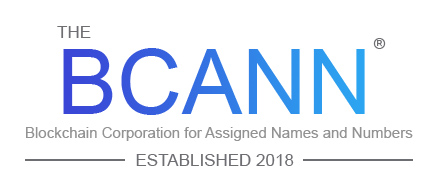
Enjin Coin is a project of Enjin, a company that provides an ecosystem of interconnected, blockchain-based gaming products. Enjin's flagship offering is the Enjin Network, a social gaming platform through which users can create websites and clans, chat, and host virtual item stores.
Enjin allows game developers to tokenize in-game items on the Ethereum blockchain. It uses Enjin Coin, an ERC-20 token, to back the digital assets issued using its platform, meaning that items can be bought, sold and traded with real-world value.
Enjin Coin was first announced in July 2017, and it launched on the Ethereum mainnet in June 2018.
Enjin Coin (ENJ) is a digital store of value used to back the value of blockchain assets like non-fungible tokens (NFTs). Every asset minted with the Enjin Platform contains ENJ, a minting resource which is locked inside NFTs and removed from circulation. Minting blockchain assets with ENJ provides a variety of benefits to creators and users:
Infuses them with a reserve value
Ensures their transparency and scarcity
Gives them instant liquidity
Provides utility in games and apps
Anti-inflationary
Enjin's "melting" functionality allows users to destroy their blockchain assets at any time to retrieve the ENJ value from within.
The Enjin blockchain ecosystem aims to offer software products that make it easy for everyone to develop, trade, monetize, and market with blockchain.
Founded in 2009, Enjin has roots in the gaming industry, with the company’s first product, a gaming community platform called the Enjin Network, growing to 20 million users over the course of a decade.
In 2017 following an ICO, Enjin established itself as a leading blockchain ecosystem developer, building a suite of software products that enable anyone to easily mint, manage, trade, distribute, and integrate blockchain assets.
Enjin’s co-founder Witek Radomski wrote the code for one of the first ever non-fungible tokens (NFTs) and is also the co-author of the ERC-1155 Ethereum token standard.
Built on top of an on-chain infrastructure, the Enjin ecosystem enables game developers and businesses of all sizes to use tokenized digital assets as part of their acquisition, retention, engagement, and monetization strategies. The Enjin ecosystem is fueled by Enjin Coin (ENJ), a cryptocurrency used to back the value of blockchain assets.
Who Are the Founders of Enjin Coin?
Enjin was founded as a gaming community platform in 2009 by Maxim Blagov and Witek Radomski, with Blagov becoming CEO and assuming responsibility for the creative direction of the company and Radomski serving as chief technical officer, responsible for the technical development of its products. Blagov has described himself as having experience in creative direction, marketing, and software project management and design.
The idea of introducing blockchain to Enjin was first proposed by Radomski after he became interested in Bitcoin (BTC) in 2012, eventually convincing the company to accept it as a payment option. After learning about Ethereum and smart contracts, he decided he wanted to create his own blockchain-integrated software. Radomski is also the author of the ERC-1155 token standard, a new standard for Ethereum-issued tokens that was introduced in June 2018, finalized in June 2019, and is used for minting both fungible and nonfungible tokens.
What Makes Enjin Coin Unique?
According to co-founder Radomski, Enjin Coin is unique in that every token minted with Enjin Platform, the company's blockchain asset development platform that launched in February 2020, is directly backed by ENJ, giving in-game items real-world liquidity. Similarly, Blagov has stated that the company is focused on adoption, saying he imagines a future in which millions of gamers use digital items backed by Enjin Coin without even knowing it exists.
Enjin Coin uses a series of smart contracts to which game developers send ENJ to mint new, unique fungible or nonfungible ERC-1155 tokens. These tokens can be traded on the Enjin Marketplace, which launched in September 2019, or exchanged for their backing ENJ at any time. As more custom tokens are minted, more ENJ is removed from the ecosystem, thus making it scarcer.
According to its whitepaper, Enjin Coin uses a series of both on-chain and off-chain processes. When a transaction is completed within the Enjin ecosystem, a Trusted Platform contacts the users' smart wallets, and the website or game is updated immediately with a placeholder or nontradable version of the digital item until the transaction has been validated by the Ethereum blockchain.
Related Pages:
Learn about Decentraland, a virtual world where land ownership is backed by cryptocurrency.
Learn about Atari Token, the cryptocurrency project by iconic video game producer Atari.
Want to know more about initial coin offerings? Read an in-depth guide on Alexandria, CoinMarketCap's online educational resource.
Stay up to date on how blockchain is disrupting the gaming industry with the CoinMarketCap Blog.
How Many Enjin Coin (ENJ) Coins Are There in Circulation?
Enjin Coin has a fixed maximum supply of 1 billion tokens. However, as the ecosystem grows and more ENJ is locked into in-game digital assets, the number of coins actually circulating will decrease.
Enjin Coin was first made available for purchase during a presale event in September 2017 in which 400 million ENJ was sold for a total of 38,800 Ether (ETH), worth $12 million at the time, with another 100 million ENJ given away as bonuses. In total, the presale sold and gave away 50% of the total supply. An initial coin offering was held in October 2017, with 300 million ENJ — 30% of the total supply — available for sale. The ICO raised 75,041 ETH, worth $18.9 million at the time. Tokens that were not sold during the ICO were locked for six months to be later used for community initiatives and marketing.
10% of the total token supply was reserved for the company for community initiatives, beta testing, marketing and strategic partnerships, while another 10% was reserved for team members and advisors. Team member tokens were locked for the first six months and vested over a period of 24 months, while advisor tokens were locked for two months and fully released afterward.
How Is the Enjin Coin Network Secured?
Enjin Coin is an ERC-20 token issued on the Ethereum blockchain, meaning that any on-chain ENJ transactions are validated and secured by the Ethereum network using a proof-of-work consensus algorithm. Miners compete among each other to add new blocks to the blockchain and a majority of all nodes in the network must confirm a record for it to be posted.
The underlying smart contracts that power Enjin Coin have undergone several audits, including by Ethereum developer Matthew Di Ferrante in September 2017, smart-contract auditor and developer ZK Labs in early 2018, and Castillo Network in July 2019.
In October 2020, Enjin launched a bug bounty program via information security company HackerOne.
Where Can You Buy Enjin Coin (ENJ)?
Enjin Coin can be purchased on cryptocurrency exchanges such as Binance, Bithumb, Uniswap (V2) and Balancer, among others. It can be traded against fiat currencies such as the U.S. dollar and the euro, cryptocurrencies such as Bitcoin and Ether, and stablecoins such as Tether (USDT) and USD Coin (USDC). It can be bought and sold on both spot and derivatives markets.


